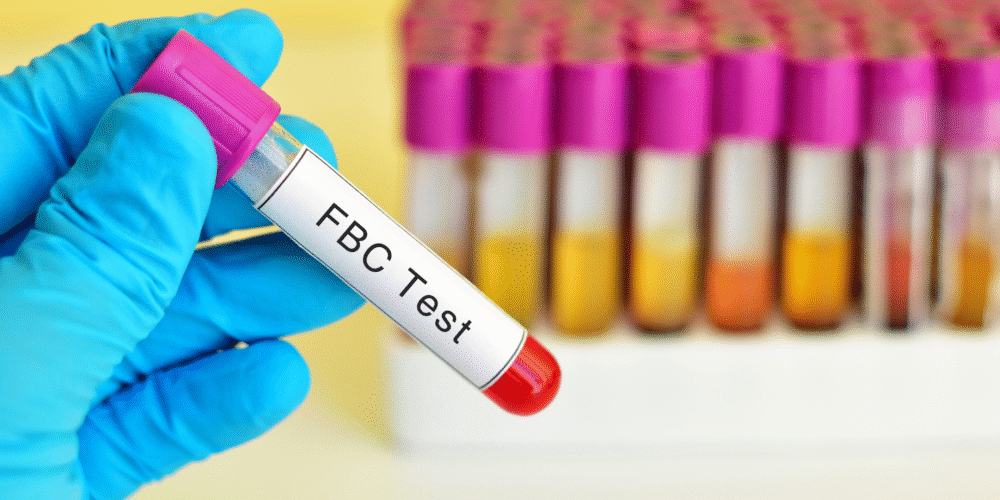
What is FBC? A Complete Guide to Full Blood Count Testing
By Tharb Faisl
Blood tests are one of the most common investigations in healthcare. Among them, the Full Blood Count (FBC) is the most widely used. If you have ever wondered “what is FBC?”, you are not alone. Many patients ask this question when their doctor recommends one.
At Marylebone Diagnostic Centre, located at 73 Baker Street, London, we provide fast, accurate FBC testing with same-day results. This blog explains what the test is, what it shows, and why it matters.
What is an FBC test?
An FBC (Full Blood Count) is a routine blood test. It measures the main components of your blood:
- Red blood cells – these carry oxygen around your body.
- White blood cells – these fight infection and keep your immune system strong.
- Platelets – these help your blood clot after an injury.
Doctors use the FBC to check overall health and spot early signs of illness.
Why is an FBC important?
The FBC is like a snapshot of your health. It can detect problems even before symptoms appear. This makes it a valuable first step in diagnosis.
An abnormal FBC may point to:
- Anaemia (low red cells)
- Infections (high white cells)
- Immune system problems
- Clotting issues (low platelets)
- Blood cancers such as leukaemia (rare but serious)
By spotting changes early, doctors can act before a condition worsens.
What does an FBC show in detail?
The test produces several readings, each with its own meaning:
- Haemoglobin (Hb): measures oxygen-carrying protein. Low levels suggest anaemia.
- Haematocrit (Hct): shows the proportion of red cells in blood.
- Mean cell volume (MCV): size of red cells, used to classify types of anaemia.
- White blood cell count (WBC): high counts may mean infection; low counts can suggest immune issues.
- Platelet count: too few platelets increase bleeding risk; too many may cause clotting.
Your results are compared with normal ranges. A doctor will explain if anything is abnormal.
When should you have an FBC test?
Your doctor may recommend an FBC if you have:
- Unexplained tiredness or weakness
- Fever, chills, or ongoing infections
- Unusual bruising or bleeding
- Symptoms of chronic illness
- Concerns about general health
You do not need to be unwell to book an FBC. Many people have it as part of an annual health check.
The process at Marylebone Diagnostic Centre
At MDC, the process is quick and simple:
- Book an appointment online or by phone.
- Have your blood taken by a trained phlebotomist, HCA or Doctor.
- Samples are analysed using advanced equipment.
- Results are ready the same day in most cases.
- Doctors explain findings and recommend next steps if needed.
The whole visit usually takes less than 15 minutes.
How to prepare for the test
No special preparation is usually required. You can eat and drink as normal unless advised otherwise. If your doctor orders other tests alongside the FBC, you may need to fast.
How long for results?
At MDC, most FBC results are available the next working day.
Common conditions detected by FBC
The FBC can point towards many conditions, including:
- Iron-deficiency anaemia – low iron reduces red blood cell production.
- Vitamin B12 or folate deficiency – can cause larger, abnormal red cells.
- Infections – high white cells indicate the body is fighting something.
- Bone marrow problems – rare but serious, such as leukaemia or aplastic anaemia.
The test does not give a full diagnosis on its own, but it highlights where to look next.
FAQs about Full Blood Count testing
Conclusion
A Full Blood Count is one of the most important and routine blood tests in medicine. It gives doctors valuable insight into your health, even before you feel unwell. At Marylebone Diagnostic Centre, 73 Baker Street, London, we provide fast and accurate FBC testing with same-day results.
Book your FBC test today at Marylebone Diagnostic Centre. Same-day results, trusted care, central London location.
73 Baker Street, London
+44 7495 970109
marylebonediagnosticcentre.com


